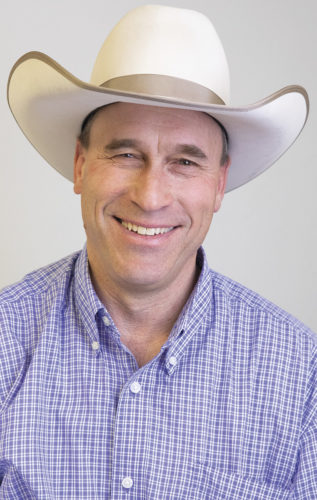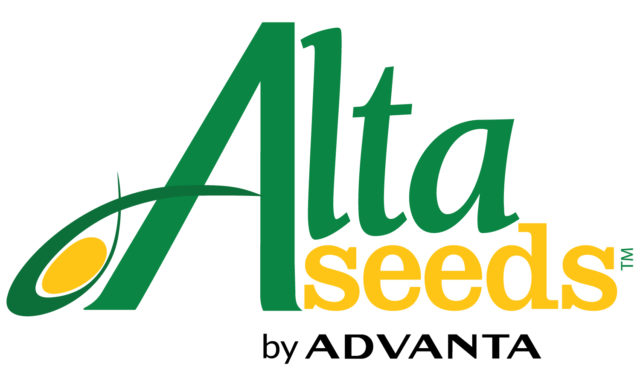I’ve been fortunate the past few years to have carved out a nice little niche for marketing my calves. After weaning, we haul the calves 25 miles down the road and stick them in a little satellite feedyard of a local guy who’s been feeding cattle for years and who seems to have a knack for getting them fat – which, after all, is the goal. I’ll peddle a load or two of them off in the spring as 7- or 8-weights to a few guys who are looking for the specific genetics we raise (if they’re willing to ante up for the premiums), but most of our calves are kept in the feedlot and taken to finishing weight, at which time they are shipped to plants in Texas or California.
For the most part, it’s worked pretty well, and we’ve been able to keep our humble outfit afloat. As you might imagine, since we’re not a gigantic operation, the few days in November and December when we ship fat cattle are critical and are often accompanied by a good dose of angst. This past year was no exception.
On the day before we were to ship the first two loads of fat cattle to Texas (a process that is inherently anxiety-inducing if for no other reason than it’s a mere 1,050 or so miles from south-central Idaho to the panhandle of Texas), I spent the morning sorting. The cattle looked ready, and all went fairly well. I’d remembered to get the brand inspection and the health papers, and the truckers scheduled to haul were extraordinarily reliable. We were ready to roll.
The next day, Ismael, who was all set to help me load, called me from the yard to tell me the trucks were waiting at the chute. It was two hours earlier than I’d expected, but that was a good thing. It was a cold, bright November morning, one that really wakes you up when you step out and take in that first big breath of cold, fresh feedlot air. The steam drifting up from the bunks as the cattle nosed through the morning’s first feeding reminded me of Goldilocks’ porridge bowl. Things were just right – until they weren’t.
The first thing I noticed when I stepped out of the pickup were the legs of a big ol’ 1,500-pound steer in the shipping pen. They were pointing heavenward, mocking me as they protruded from his massive, lifeless frame. This wasn’t a good way to start. Things got a little better, but not by much.
The facilities at the little yard are adequate but far from ideal. There are no scales at the pens, so we have to weigh the trucks a half-mile down the road, so we can only hope we don’t over- or underload the trucks, in which case, we have to back up to the chute and load or unload a few head and then go weigh the truck again.
There’s no crowd tub leading up to the chute, so sometimes there will be a half-crazy critter that refuses to stick his nose up the chute. Such was the case on this morning. A big yellow steer was determined to go anywhere but on the truck. We tried him with several different groups, but he always managed to finagle his way around until he was the last one in the pen, which gave him plenty of room to spin and whirl around the frozen pen in complete, wild-eyed defiance. We eventually got him loaded, but I was pretty sure we’d made a dark cutter out of him. At least he had a 16-hour ride ahead of him to hopefully help him calm down. I sent a silent little prayer up that he’d at least survive the trip.
By the time the trucks finally got headed down the road, I was not seeing much good in the world. At that moment, I couldn’t see much worth celebrating. All I could see was a big dead steer and the lost dollars and opportunity he represented lying in the crap and the muck. “Such was my lot,” I thought. I should never expect much more.
A few days later, a check came in the mail and my foul mood was tempered a bit. Although I still had a big feed bill to pay and the price of diesel and doing the business of ranching tended to make my blood boil, there was some good in my world. With premiums included, I’d sold my cattle for the highest price I’d ever sold them for, with the promise of the same price for the remaining loads. I’d been able to watch the fruits of my labors go from “pasture to plate,” and it was nearly December, and I hadn’t fed a flake of hay yet. Things could be worse – which got me to thinking.
Why is it that we so often go off hunting for ways to be unhappy? Misfortune will find you without your putting any effort into gathering it up. But I’m willing to bet that if you’d spend as much time hunting good as you did hunting misery, you’d find your cup running over and the misfortune would seem a little less unfortunate. I think if you hunt for happiness, you’ll be able to fill your tag, regardless of the inevitable storms of life.












